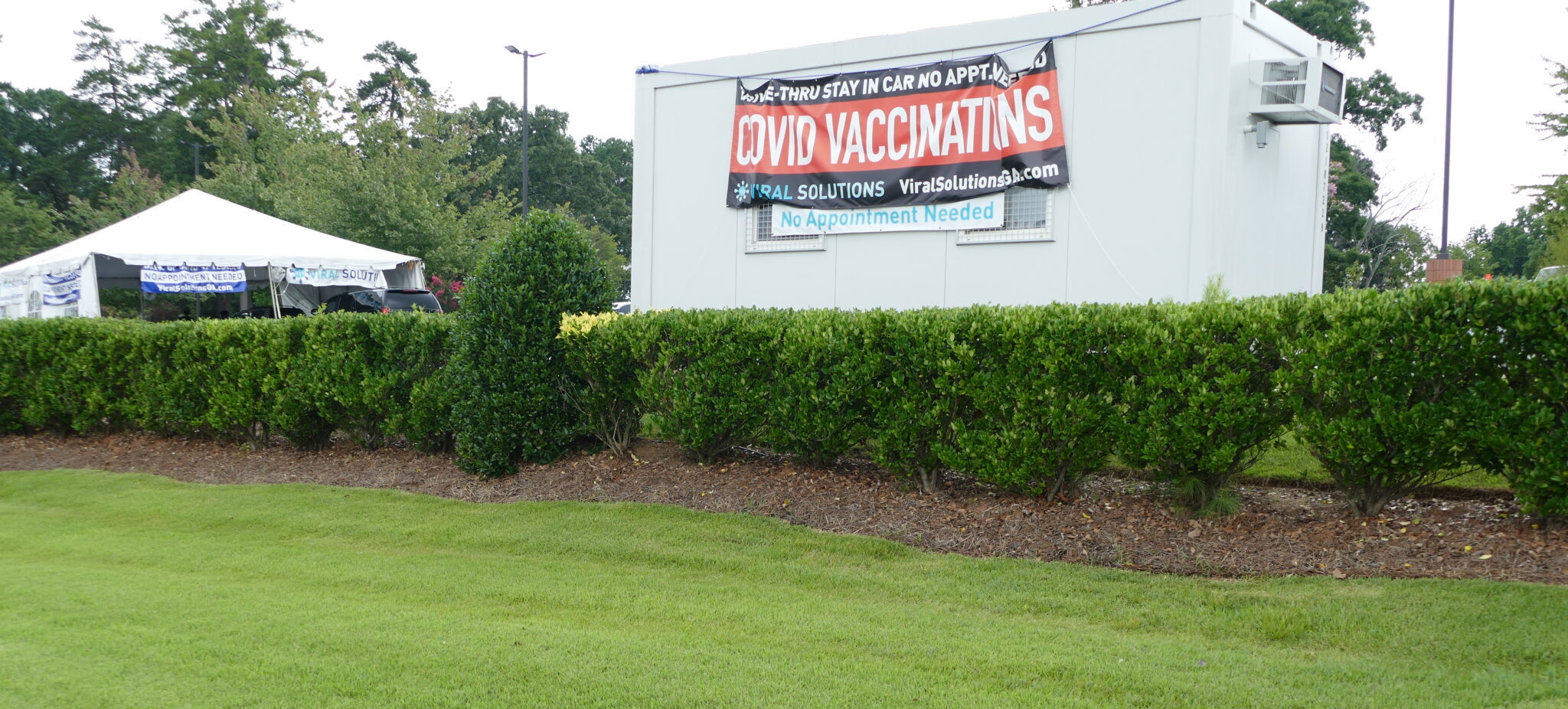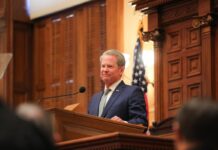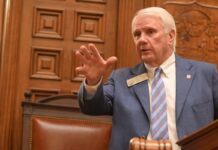
WASHINGTON (GA Recorder) — Amid a rise in infections and hospitalizations from the surging delta variant of COVID-19, the Biden administration is boosting money and other assistance to the hardest-hit areas of the country.
This week, just three states with lower vaccination rates — Florida, Texas and Missouri — accounted for 40 percent of all cases nationwide. One in five cases occurred in Florida alone.
Federal public health officials on Thursday announced $1.6 billion in money from the pandemic relief package approved earlier this year will be used to increase testing and mitigation in high-risk group settings, like homeless shelters, substance abuse treatment centers and prisons.
Another $100 million will be sent to rural health clinics to pay for more vaccine education and outreach in communities that generally have seen the slowest vaccine uptake.
As they send more resources, federal health officials emphasized that those spikes in infections and hospitalizations typically are occurring in regions that have the lowest rates of vaccination.
“If you are not vaccinated, please take the delta variant seriously,” said Dr. Rochelle Walensky, director of the Centers for Disease Control and Prevention, during a press briefing. “This virus has no incentive to let up, and it remains in search of the next vulnerable person to infect.”
Georgia’s vaccine rate has also been low, spurring Vice President Kamala Harris to visit the state last month in an effort to convince skeptical residents.
The state ranks 45th in the nation for the percentage of adults who are fully vaccinated, according to CDC data compiled by the New York Times.
But Georgia has so far avoided the rise in infections and hospitalizations taking hold in other states. Georgia has an infection rate of 12 per 100,000 residents, the same as the national average. In Georgia, 10 residents out of every 100,000 are hospitalized for COVID-19, higher than the national average of eight but much lower than in Florida and Missouri, where those numbers are 21 and 25.
Still, Georgia’s cases have been rising — the 14-day case average is up 220% compared to the national average of 171%, the Times reports.
Several Georgia counties stand out from the rest as hotspots: in Chattahoochee County on the western border, there were 1.9 cases for every 100 residents over the last two weeks, according to state data, and in neighboring Stewart County, that number is .7 per 100 residents.
Two counties bordering Florida also have elevated rates — Camden and Charlton have rates of .78 and .85 per 100, respectively.
Federal “surge response” teams have been working with governors and local public health officials. They’ve provided technical expertise on genetic sequencing, data analysis, and outbreak response to Missouri, Illinois and Colorado, said Jeff Zients, the White House’s COVID-19 response coordinator.
In North Carolina, FEMA will be deploying mobile vaccination clinics, Zients said.
FEMA and Department of Health and Human Services staffers have been on the ground in Nevada to assist in the COVID-19 response. HHS Secretary Xavier Becerra visited on Thursday to check in on the mitigation efforts.
The national vaccination campaign did dramatically curb the virus’ spread by late spring, but vaccinations have stalled across the country, with 68% of U.S. adults having received at least one shot.
There are wide variations regionally, and the number of infections and hospitalizations has begun to rise again as the more contagious delta variant surges. The seven-day average of U.S. cases has gone up 53% compared to the previous seven-day average, according to data from the CDC.
Hospitalizations are up 32%, and deaths have risen 19%. Ninety-seven percent of those cases are occurring among the unvaccinated, according to federal health officials.
But there may be shifting views toward the vaccine in areas of the country that have been most reluctant. In the past week, five states with the highest case rates — Arkansas, Florida, Louisiana, Missouri, and Nevada — had higher rates of people getting newly vaccinated compared to the national average, Zients said.
While some parts of the country have begun to reconsider or reinstate mandates on wearing face masks amid the surging cases, CDC officials so far are not calling for any changes. The agency’s recommendations say unvaccinated individuals should wear masks and that those who are vaccinated can do so at their own discretion.
RELATED
NEGA Physicians Group schedules vaccine clinic; urges people to get vaccinated






